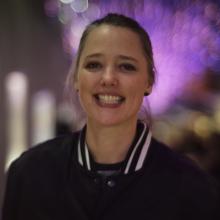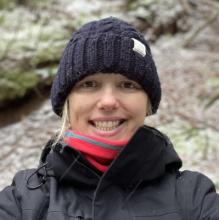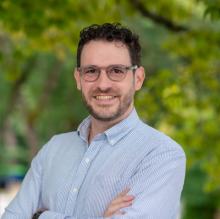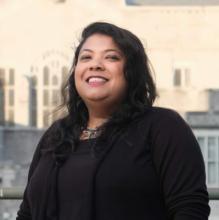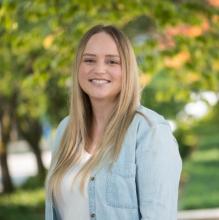Being a Public Scholar is integrating academic research and community engagement to create meaningful impact. It means using my expertise and knowledge to address real-world problems, collaborate with diverse stakeholders, and bridge the gap between academia and the public.
Research Description
My research examines the impact of the Japanese practice of shinrin-yoku (forest bathing) on key health metrics—blood pressure, heart rate, and self-reported mood—in Metro Vancouver residents aged 19 and above. My fieldwork included a randomized controlled trial design examining guided and self-guided forest bathing experiences at four parks across four seasons. Key research questions include: How does forest bathing affect diastolic and systolic blood pressure, heart rate, and mood, considering environmental factors and vegetation characteristics? How do the effects vary between guided and self-guided forest bathing? My work argues that while the beneficial effects of nature-based interventions such as forest bathing are generally recognized, their efficacy can be nuanced by demographic and environmental factors. I advocate for precision health approaches considering individual, community, and ecological attributes, aiming to design more effective, personalized nature-based health interventions.
What does being a Public Scholar mean to you?
To me, being a Public Scholar is integrating academic research and community engagement to create meaningful impact. It means using my expertise and knowledge to address real-world problems, collaborate with diverse stakeholders, and bridge the gap between academia and the public. In my case, it's about leveraging rigorous methodologies, like the randomized controlled trial I conducted, to collect actionable data on how urban green spaces can serve as therapeutic environments and disseminating the results to address real-world challenges. Through my roles as a forest therapy guide and community-based environmental science educator, I break down complex scientific knowledge about human-nature interactions into actionable insights accessible to the general public. In doing so, I bridge the gap between academia and the public, going beyond merely publishing papers to empowering communities and policy-makers with frameworks that can potentially improve public health.
In what ways do you think the PhD experience can be re-imagined with the Public Scholars Initiative?
The traditional PhD often emphasizes theoretical frameworks and rigorous methodologies over practical application. The Public Scholars Initiative can potentially move the PhD experience toward broader societal engagement and interdisciplinary collaboration. This possibility empowers me to convert forest-based wellness research into actionable insights, contributing to holistic public health strategies.
How do you envision connecting your PhD work with broader career possibilities?
I see my PhD work enhancing my multifaceted career that intersects environmental research, public policy, and entrepreneurship. With a history of founding educational startups and nonprofits in technology and the environment, I have already led projects that integrate these disciplines. For example, my project with UBC Emerging Media LabX on Virtual Therapeutic Landscapes provides immersive audio-visual experiences that make restorative forest bathing accessible. In addition, I have begun working with community forests and regional parks. I have taken diverse groups out forest bathing, ranging from the Global Environment Facility to health professionals and students at UBC. My recent foray into advising on trail designs based on empirical evidence further illustrates this integrated approach. Ultimately, my PhD aims to lay the groundwork for scalable, nature-based wellness solutions, whether in a consulting role with governments, continued academic research, or launching a startup focused on creating climate-resilient, health-promoting forest spaces.
How does your research engage with the larger community and social partners?
My research is structured to be inherently participatory. Collaboration with local communities and nonprofits is fundamental to my work. Through projects with organizations like Metro Vancouver Regional Parks and B.C. community forests, my work offers immediate, practical benefits. It's a reciprocal relationship: I provide data-driven insights to improve park and recreational trail planning and, in return, gain expertise and knowledge that enriches my research.
Why did you decide to pursue a graduate degree?
My decision to pursue a graduate degree was influenced by my professional journey in the tech industry and a transformative personal experience in Japan. After years of collaborating with academics and environmental experts, I became increasingly captivated by questions about the sustainable and ethical use of technology and natural resources. While living in Japan, I trained with forest bathing researchers and a mountain monk, delving into stress-relief techniques initially designed for high-stress tech professionals like me. This experience was pivotal in determining that a PhD would provide the structured, rigorous framework I needed to investigate these questions, mainly focusing on their impact on public health and well-being.
Why did you choose to come to British Columbia and study at UBC?
I chose to study at UBC's Faculty of Forestry for its global reputation in multidisciplinary research on complex ecological systems, which aligns with my focus on human health and natural environments. My decision to study at UBC was further inspired after watching seminars by my eventual supervisor, John Innes, who discussed the intersection of forests and public health, an under-researched topic in Canada. Returning to Vancouver, my hometown, after an extended absence was personally meaningful. Having family who are alumni cemented my decision.
The Public Scholars Initiative can potentially move the PhD experience toward broader societal engagement and interdisciplinary collaboration.

